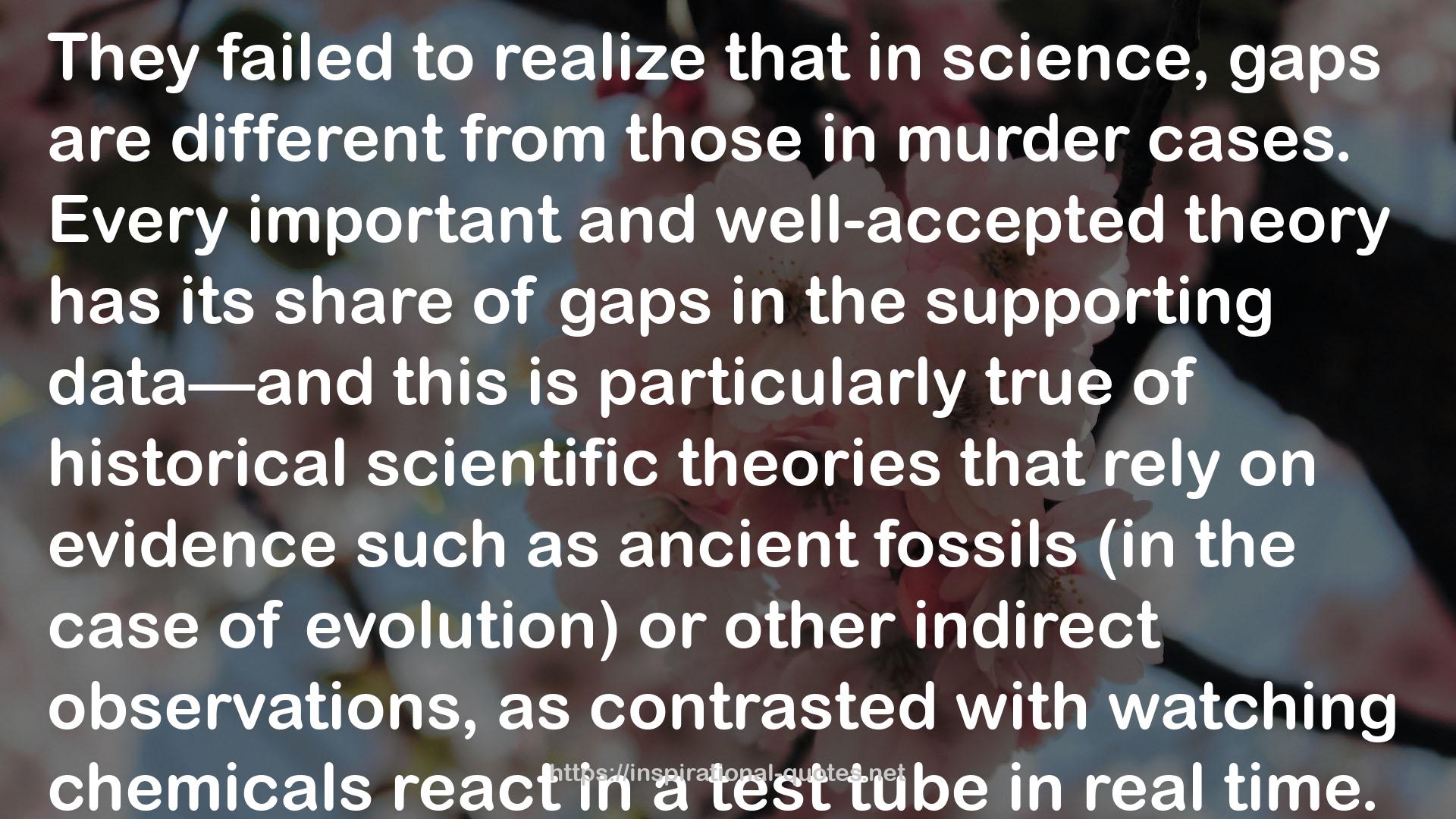" They failed to realize that in science, gaps are different from those in murder cases. Every important and well-accepted theory has its share of gaps in the supporting data—and this is particularly true of historical scientific theories that rely on evidence such as ancient fossils (in the case of evolution) or other indirect observations, as contrasted with watching chemicals react in a test tube in real time. The theory of gravity, the big bang theory, the theory of relativity, quantum theory, atomic theory, plate tectonics theory—their histories all consist not simply of eureka moments in the lab, but also of a gradual filling in of gaps, a process that continues to this day. That is the nature of science, which continually tests its theories with new information. With large, explanatory theories such as evolution, the fact that there are gaps in the data is expected—problems arises only when gaps are filled and new information doesn’t fit the theory. Then scientists say that a theory has been “falsified.” This is why ancient Greek mathematicians and naturalists stopped believing the Earth was flat long before cameras were launched into space to photograph the globe—they knew the Earth couldn’t be flat, because the available data did not fit the theory anymore. Ships sailed off in one direction but did not find or fall off an edge. On the other hand, the theory that the Earth is a globe was accepted centuries before it was actually “proved.” That didn’t mean there weren’t gaps—such as why objects on the “bottom” of the globe didn’t fall off into space, as the principles of gravity were not well understood until much later (and gaps in that understanding remain to this day). So gaps in theories are not only real but expected in science—and they do not in themselves disprove or discredit a theory. The board members didn’t grasp that distinction, however, and so they enthusiastically endorsed mentioning “gaps” in the belief that this statement represented a valid criticism of "
― Edward Humes , Monkey Girl: Evolution, Education, Religion, and the Battle for America's Soul
